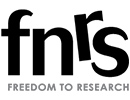The Case for an Aristotelian Oath in Finance
01.04.2019In the recently published ‘Festschrift’ for Karl-Heinz Brodbeck I have a paper (in German) that argues in favour of an ‘Aristotelian Oath’ in finance. This goes back to the insights gained by our INSOSCI project. The core idea is that agency in the financial sector manifests a collectively shared identity. Hence, resolving certain problems of regulating the sector must also rely on changing these identities. Why an oath? Why ‘Aristotelian’?
After the financial crisis, a movement was launched at some leading business schools in the US that propagated the idea of an oath, combined with certain ritual practices. That movement faded away but seems to experience a revival recently. The model would be the Hippocrates oath in medicine. Though not practiced today, it still plays a strong role in conceptions of ethics in medicine. The core point is that the oath solemnly declares various values and commitments that define the professional identity of actors. My use of ‘Aristotelian’ relates to Aristotle’s notion of money and ‘chrematistics’, arguing that money is a unique economic good since the desire for money is never satiated, which creates serious ethical issues. Therefore, I suggest an ‘Aristotelian oath’ for finance.
Economists typically reject the idea that ethics can be stronger than economic incentives. But that is exactly Aristotle’s point: The desire for money is extremely strong and would overcome all other motives, with harmful consequences. Indeed, it is straightforward to diagnose ethical failure in finance: Just read what a leading economist and then President of the American Finance Association, Luigi Zingales, had to say on that in his ‘Presidential Address’. Fraud, deception, misinformation, corruption, criminal bending of rules, all that what has been dubbed ‘Phishing for Phools’ by Nobel laureates Akerlof and Shiller. There is even experimental evidence of a team including Ernst Fehr that assuming the banker’s identity significantly enhances the willingness to cheat. As a result, according to opinion surveys, the bankers’ profession is one among the lowest reputation in the public. Bankers should worry about that, and if they don’t, it seems proof of ethical failure, indeed.
The solution normally offered by economists is regulation. But I think that this is wrong, or at least, cannot be the only solution. The reason is that money is such a strong incentive, as recognized by Aristotle. And there is a catch. Regulation always constrains the actions of actors, which means that only few of them will be able to go beyond those constraints. But then the profit opportunities are especially strong! Those actors who find ways to circumvent the regulation will always gain much higher profits than others. That can be done both by legal and illegal means, with a wide grey area in between, as we saw in the financial crisis. That means, all regulation will always create the incentives to erode it, in the longer run, thus triggering cycles of regulation, deregulation and reregulation, never really resolving the fundamental issues.
Therefore, I believe that regulation without changing the identity of actors is nothing but a theatre to make the public believe that politics is acting, after all. In which way? Well, similarly to the identity of doctors as embraced in the Hippocrates oath. Finance professionals should perceive themselves as providing a public service, strongly bound by commitments to the public interest, not only vis-à-vis their clients, but also to society at large. They should express commitment to highest standards of quality, transparency and customer orientation in designing and trading financial products. Their professional goal would not be to maximize profits, neither their own nor of a limited group of principals, but to improve the services, broaden inclusion and strengthening the “health”, almost in the literal meaning, of finance.
The otherwise firmly liberal Swiss economist Bruno Frey already suggested many years ago that executives should be paid like civil servants, because of the undesirable effects of pecuniary motivation. That applies for finance as well: An oath would not have strong effects as long as individual incentive systems always make pecuniary gains salient. But only changing incentive systems would also fail, because people will find ways to circumvent this. Hence, only a combination of both will change the system radically to the better.
Of course, an oath would just be the capstone event in a radically renovated system of finance education. It is not enough to add a ‘business ethics’ course to the traditional curriculum which just tells students how to make more money from money, camouflaged as ‘risk transformation’, but ending up as risk production. Finance education must include a strong dose of transdisciplinary topics, history, philosophy and law. The technical aspects, after all, will soon be left to AI anyway!
Akerlof, George A. and Robert J. Shiller (2015): Phishing for Phools: The Economics of Manipulation and Deception. Princeton and Oxford: Princeton University Press.
Cohn, Alain, Ernst Fehr and Michel André Maréchal (2014): Business culture and dishonesty in the banking industry. Nature, 19, https://doi.org/10.1038/nature13977.
Herrmann-Pillath, Carsten (2019): Plädoyer für einen Aristotelischen Eid im Finanzsektor, in. Graupe/Ötsch/Rommel, Hrsg., Spiel-Räume des Denkens. Festschrift zu Ehren von Karl-Heinz Brodbeck, Marburg: Metropolis 2019
Zingales, Luigi (2015): Presidential Address: Does Finance Benefit Society? The Journal of Finance 70: 1327–63. https://doi.org/10.1111/jofi.12295.







